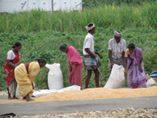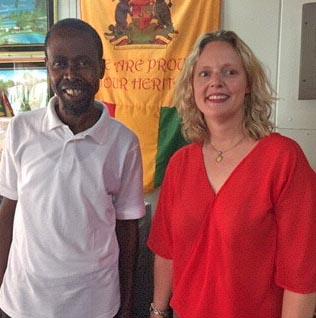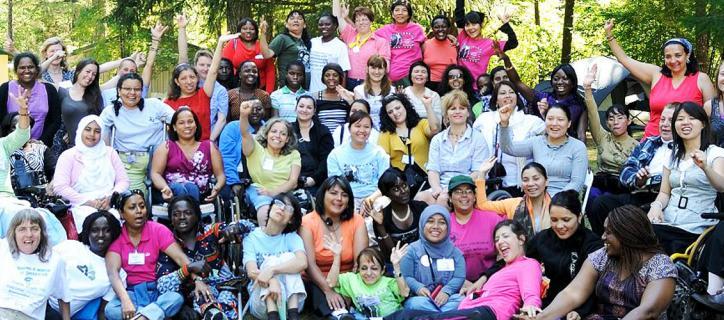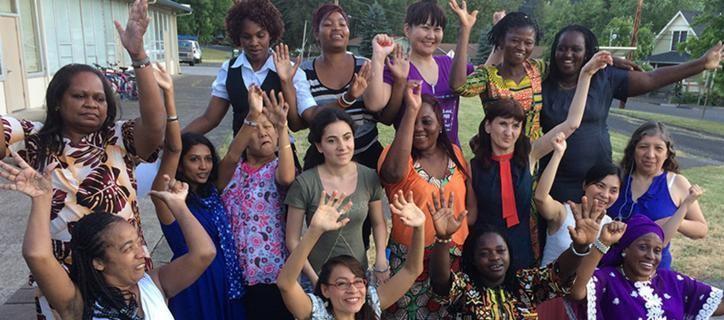“Now I know we are all simply children of the universe.”
Menke Meijer’s path was often rocky. “I had mountains of sticks put in my wheels, people trying to stop me, but it has only helped me push harder and further”, she says. Her story is one of strength, dedication, vision, patience, liberation, and one of breaking down multiple barriers.
“I would have to say I’m fighting two fronts: the first being the fight for gender equality and the second being the fight against a history of colonization and racism.”
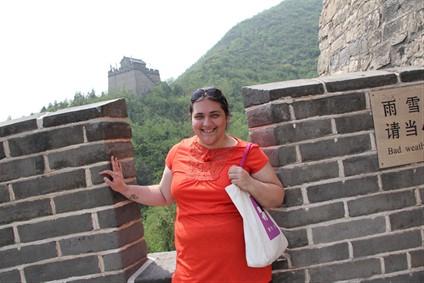
As a Métis woman from a “very poor background”, Menke faced numerous obstacles, seeing her biggest challenge as “simply being a woman, and in certain cases being an aboriginal woman”. She has been confronted with sexism and racism. The stigma and dangers rooted in racism have influenced her way in finding her position and identity as an aboriginal woman. “My family was quite reluctant to speak about our origins” but eventually through Menke’s efforts they “started to open up on the subject.” During her undergraduate and graduate studies, Menke took all the courses she could on the subject of First Peoples in Canada in order to learn more about her origins.
“I’ve been working hard on decolonizing myself and helping my family in reclaiming our identities.”
Part of this work were decisions Menke took, and the biggest and most important being her “decision to pursue education”. She was aware that this “meant a dangerous gamble with hefty student debt” but she also realized that, in comparison to her previous experience in minimum wage work, this was a much more rewarding journey for her.
“I picked to pursue my passions no matter the hardship. It has changed who I am positively, as well as my life.”
Menke obtained a Bachelor’s degree in History from Concordia University in Montreal, winning a merit-based Gordon Ritchie Award/Scholarship. Yet, while studying about slavery, war, and genocide she felt frustrated and in addition to books, she wanted to “take action”. Menke decided to pursue a Master’s degree in Peace and Conflict Studies at the University of Waterloo, focusing her Master’s work on gender in conflict and peacebuilding, gender in humanitarian aid, and especially on women in China.
“I’m the first woman to hold a Bachelor’s and a Master’s degree on both sides of my family. I’m breaking down gender and racial barriers. I’ve never felt so alive and accomplished. I feel liberated.”
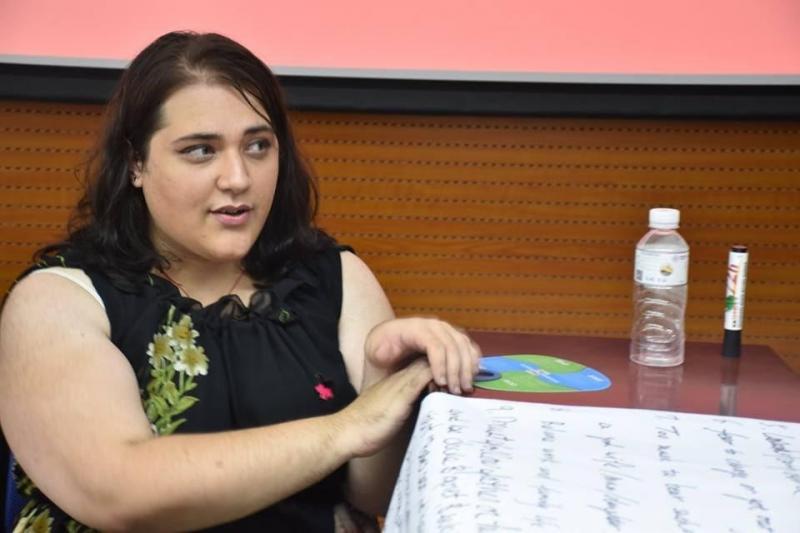
In China, Menke completed a five-month internship with UN Women, for her “an extraordinary experience in extraordinary settings.” During this time, she was invited as a guest speaker at Tsinghua University in Beijing for the Lean In MBA event where, through her own story, she spoke about overcoming ‘roadblocks’ women face in seeking education. As part of her story she shared, “I was raised by a single mother in poverty and had to face many challenges to further my education”.
Much of Menke’s work towards overcoming multiple challenges and striving for change has been pushed by anger, coming from obstacles that were in her way. “Anger can be destructive, but it can also be creative. My challenges anger me, but they also push me to strive for better.”
Striving for better also means having many dreams “for all women, no matter they be white, black, Asian, or any colour, creed or walk of life”. Menke wants “the world to validate women” as “nothing is more moving than being told that you are just a human”.
A bit more about Menke
She had the opportunity to be part of a team that helped establish the Global Peace Centre Canada (GPCC) in Waterloo, initiated by the director of the Master’s of Peace and Conflict Studies program Ziauddin Yousafzai (and Malala Yousafzai’s father). The vision and goal of the GPCC are peace and education for all boys and girls.
Menke was born in British-Columbia, grew up in Quebec and is currently living in Ontario, Canada.
Read Menke’s short story
She wrote a short story entitled “Feeding Wolves”, based on her life as a Métis woman and aboriginal peoples’ experiences in Canada. About the story Menke said that “only three characters are female…I did this on purpose to not only expose a theme of patriarchy that is strongly present in settler society even to this day, but to show how the women are missing from the narrative...”

